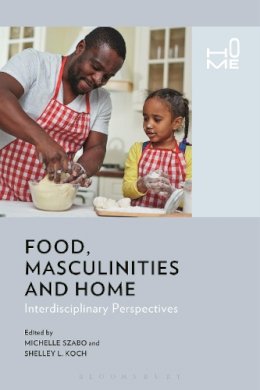
Food, Masculinities, and Home: Interdisciplinary Perspectives
Szabo Michelle
Long-held associations between women, home, food, and cooking are beginning to unravel as, in a growing number of households, men are taking on food and cooking responsibilities. At the same time, men’s public foodwork continues to gain attention in the media and popular culture. The first of its kind, Food, Masculinities and Home focuses specifically on food in relation to how homemaking practices shape masculine identities and transform meanings of ‘home’. The international, multidisciplinary contributors explore questions including how food practices shape masculinity and notions of home, and vice versa; the extent to which this gender shift challenges existing gender hierarchies; and how masculinities are being reshaped by the growing presence of men in kitchens and food-focused spaces.
With ever-growing interest in both food and gender studies, this is a must-read for students and researchers in food studies, gender studies, cultural studies, sociology, geography, anthropology, and related fields.
Product Details
About Szabo Michelle
Reviews for Food, Masculinities, and Home: Interdisciplinary Perspectives
FoodAnthropology
This is a coherent and carefully edited collection of essays. It would be a very good starting point for any student or researcher wanting to study the intersections of food and masculinities. It is also an enjoyable read.
Food, Culture & Society
Presumptions about the gendered nature of domestic life permeate academic approaches to food. Challenging that with a focus on men, masculinities and the home, Szabo and Koch provide nuanced examples from a variety of disciplines. Expanding the terrain, they find that much has changed while much has stayed the same
Alice Julier, Chatham University, USA
Wide-ranging yet coherent, this rich collection brings together new research on the relationships between masculinity, food and home that will be required reading for anyone interested in contemporary food cultures and/or domestic life.
Joanne Hollows, Independent researcher, UK
